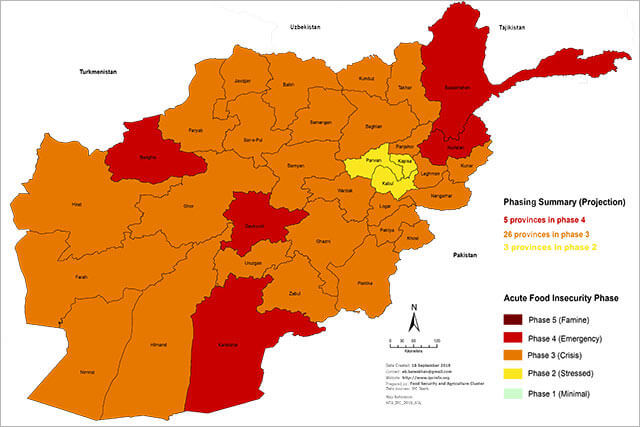Afghanistan is treading cautiously as it attempts to balance its relations between arch-rivals India and Pakistan, lest their enmity affects the peace process in the war-torn country.
Last week, Abdullah Abdullah, chairman High Council for National Reconciliation flew to capitals of India and Pakistan, meeting leaders there to seek support for the peace talks with the Taliban.

His interactions in both the capitals were closely monitored by analysts and the local media in Kabul to find out if there are any policy alignments viz-a-viz ending miseries of Afghanistan in the power circles of the two rival countries.
India has enjoyed warm relations with successive governments in Kabul, since the overthrow of the Taliban in 2001. In contrast, Pakistan’s relations with Kabul administration since then has gone frosty.
Speaking to Anadolu Agency, Muhib Sharif, a political commentator said while Abdullah was received with much warm welcome in Pakistan, but that alone cannot assess the level of support or the lack of it to the peace process.
“The most important point and challenge in this regard are that Pakistan and India, instead of disrupting the peace process [because of their bilateral rift] should seek their mutual benefits in the peace process and let the Afghan people decide for the peace in their country and the whole region,” he said.
Afghanistan not only shares its longest border with Pakistan but also share deep-rooted cultural, historic and trade ties with its eastern neighbours.
Political analyst Nizam Uddin, argues that it is inevitable for Afghan leaders, particularly peace broker Abdullah, to salvage Islamabad’s support and confidence while preserving close ties with New Delhi.
“The message from here should be communicated through words and deeds that the Afghan soil is not and will not going to be used against any foreign country regardless of the circumstances, “he said.
Softening stand of Pakistan
Pakistan last month softened its visa regime for Afghanistan, which also included on arrival visas for patients at the border as part of efforts to mend the dented ties.
In Islamabad, Abdullah tried to strike a chord by emphasizing that both countries need to go beyond the usual rhetoric and shadowy conspiracy theories.
“We cannot afford to pursue business as usual. We need fresh approaches and our people demand it from us. It is more urgent than ever to look to our region as one region”, Abdallah said while addressing a conference in Islamabad.
Pakistan Prime Minister Imran Khan assured him “support whatever the Afghans agree upon about the future of Afghanistan”.
Indian sojourn
Abdullah spent four days in the Indian capital New Delhi, partly due to his engagements and spending time with his family settled there.
Following his meeting with Prime Minister Narendra Modi, External Affairs Minister Subramanian Jaishankar and National Security Advisor Ajit Doval, Abdullah said, they also assured them support to any settlement reached among the Afghans.
To a pointed question in New Delhi on the role of Pakistan, he said Afghanistan needs support from all.
“And this means there is no self-interest, that is the bottom-line, that is what we expect from our neighbours”, he said, while addressing India’s strategic community at the Institute for Defense Studies and Analyses, a government-owned think-tank.
Brig. Ali Khail, a defence analyst said India is apprehensive about the return of the Taliban.
“It puts Abdullah and the entire Kabul government in a tight spot to assure and salvage India’s longstanding support when Kabul itself has less or little control over the peace talks with the Taliban”, he said.
The Afghan government has long been complaining against the way the US – Taliban deal was inked bypassing Kabul.